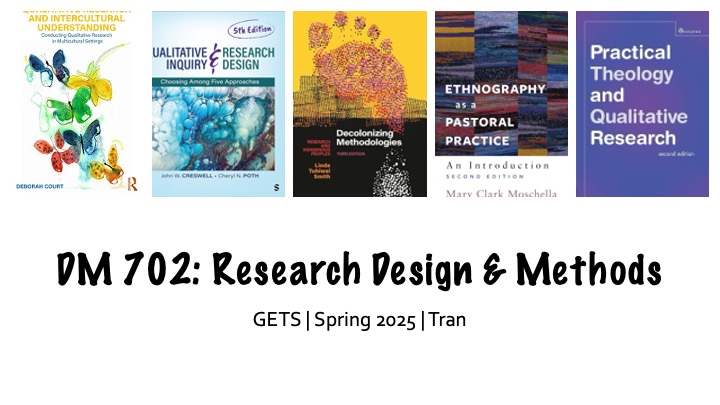
This is a seminar on research methodologies and design relevant for Doctor of Ministry (DMin) projects. It presupposes that DMin research is practical theology in nature and is interdependent upon the “formalized curiosity” (as expressed by anthropologist Nora Zeal Hurston) of social scientific inquiry and the decolonial commitments of theological inquiry. The course introduces participants to research methods and practices that equip Christian religious leaders to better understand, evaluate, and respond to concrete situations, settings, and contexts that make up the habitus and habitats of religious experience, affinity, and practice within broader cultural-religious-ecological landscapes. Such insight will contribute to the practical wisdom and imagination for religious leadership and can generate new theological insight for the Church and its faithful witness-bearing and transformative action in the world.
In this course, participants will examine theological and philosophical bases, goals, and methods of qualitative, quantitative, and mixed methods of research, drawing on literature from the fields of (inter)cultural studies, congregational studies, Christian religious education, practical theology, sociology, psychology, anthropology, and educational evaluation. Participants will also learn and construct basic elements of research design, including research questions, experimental methods, reliability and validity, data collection, data analysis, and ethics—essential components for a DMin research project.
Instructor: Mai-Anh L. Tran- Teacher: Mai-Anh Le Tran